December 06, 2019 | Joanne Morrison
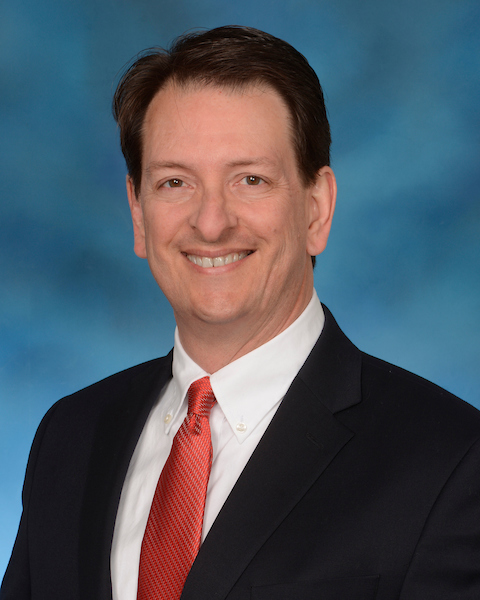
UM Medicine Partners with Tuberous Sclerosis Alliance to Treat Adult Neurodevelopmental Disorders
The University of Maryland School of Medicine (UMSOM), University of Maryland Medical Center (UMMC), and the Tuberous Sclerosis Alliance (TS Alliance) have joined together to launch first-of-a-kind centers in Maryland to treat adults with neurodevelopmental disabilities, such as autism.
The two centers – University of Maryland Center for Adults with Neurodevelopmental Disabilities (UMCAND) and the Tuberous Sclerosis Complex Center of Maryland (TSCCM) – will provide clinical evaluation, care and treatment for adults with neurodevelopmental conditions such as autism, intellectual disability, epilepsy and tuberous sclerosis complex (TSC).
“These new centers will focus on the needs of adults. It is a critical service that could ultimately change the lives of many in need, who have gone undiagnosed,” said Peter Crino, MD, PhD, Professor and Chair of the Department of Neurology at UMSOM, who will serve as the director of these centers.
Video: Governor Larry Hogan supports UM centers to treat adults with neurodevelopmental disabilities.
Currently there are two regional centers in Maryland that focus on treating autism in children – Kennedy Krieger Institute and the Wendy Klag Center for Autism at Johns Hopkins, but there are no centers for adults with the disorder. These new UM Medicine centers, in partnership with the TS Alliance, would be the first to treat adults and would serve as a bridge from pediatric care to adult care. The UMCAND and TSCCM centers come at a critical time as Maryland has the second-highest rate of autism in the United States.
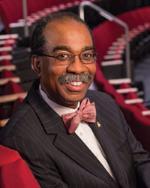 UMSOM faculty and pediatricians within the University of Maryland Medical System (UMMS) are working with Kennedy Krieger and the Klag Center to determine the best way to transfer or refer their pediatric patients once they reach adolescence to ensure a continuum of quality care.
UMSOM faculty and pediatricians within the University of Maryland Medical System (UMMS) are working with Kennedy Krieger and the Klag Center to determine the best way to transfer or refer their pediatric patients once they reach adolescence to ensure a continuum of quality care.
University of Maryland School of Medicine Dean E. Albert Reece, MD, PhD, MBA, said: “Neurodevelopmental disorders are one of the more challenging issues Dr. Crino and other researchers at the University of Maryland School of Medicine are addressing. This collaboration with the University of Maryland Medical Center and the leadership of Dr. Crino is critical as we work to better understand and treat the most complex neurodevelopmental disorders in adults. These new centers are the first in the state of Maryland and will pioneer a path toward better treatment for adults who suffer from these disorders.” Dean Reece is also Executive Vice President for Medical Affairs, UM Baltimore and the John Z. and Akiko K. Bowers Distinguished Professor, University of Maryland School of Medicine.
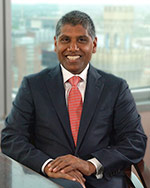 According to data from the Centers for Disease Control and Prevention (CDC), one in 58 individuals in Maryland is diagnosed with an autism disorder.
According to data from the Centers for Disease Control and Prevention (CDC), one in 58 individuals in Maryland is diagnosed with an autism disorder.
“By opening these new centers, we are taking an important step forward in connecting people with doctors and services to help them overcome challenges that may be keeping them from living life to its fullest potential,” said Mohan Suntha, MD, MBA, president and CEO of the University of Maryland Medical System (UMMS) and the Marlene and Stewart Greenebaum Professor of Radiation Oncology at UMSOM. “Under Dr. Crino’s leadership, the new centers will fill a critical gap in services and allow for better diagnosis, treatment and care.”
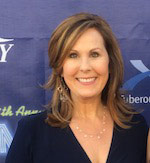 TSC and Fragile X Syndrome (FSX) are seen as the most common genetic disorders linked to autism. At least two children born each day will have TSC, with roughly 50,000 in the United States and 1 million worldwide, according to the TS Alliance.
TSC and Fragile X Syndrome (FSX) are seen as the most common genetic disorders linked to autism. At least two children born each day will have TSC, with roughly 50,000 in the United States and 1 million worldwide, according to the TS Alliance.
“The TS Alliance is incredibly grateful to UM Medicine and the State of Maryland for establishing these critically important centers,” said Kari Luther Rosbeck, TS Alliance President and CEO. “Across the country, huge gaps often exist in treating adults with neurodevelopmental disorders like TSC, so Maryland provides a role model for how to best serve these populations.”
The National Institutes of Health estimates that FSX occurs in approximately one in 4,000 males in the United States and one in 8,000 females. Individuals affected by both TSC and FSX can have delayed development of speech and language by age two. Typically, they will have mild to moderate intellectual disability, and they may also have anxiety and hyperactive behavior such as fidgeting or impulsive actions. In addition, seizures are common in both of these disorders.
Many TSC and FSX cases remain undiagnosed for years or decades due to the relative obscurity of the diseases and the mild form symptoms may take in some people, making it all the more critical to have special treatment centers focused on diagnosing and treating these disorders in adults.
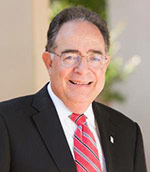 “There is such a huge need for this expertise here in Maryland and, indeed, around the world,” said University of Maryland, Baltimore President Jay A. Perman, MD. “It’s gratifying that we can fill this need, that we can provide adults with neurodevelopmental disabilities excellent care over their lifetimes, while investigating the underlying causes so that, one day, these disabilities might be vanishingly rare.”
“There is such a huge need for this expertise here in Maryland and, indeed, around the world,” said University of Maryland, Baltimore President Jay A. Perman, MD. “It’s gratifying that we can fill this need, that we can provide adults with neurodevelopmental disabilities excellent care over their lifetimes, while investigating the underlying causes so that, one day, these disabilities might be vanishingly rare.”
Clinical care for patients will be provided at the University of Maryland Rehabilitation and Orthopaedic Institute in Baltimore, and also through telemedicine for patients unable to travel or who are located in rural areas such as Maryland’s Eastern Shore region.
Dr. Crino is a highly regarded expert in tuberous sclerosis complex, and the TSCCM will serve as a model for the establishment of disease-specific programs for a broad range of neurodevelopmental disorders. The centers ultimately will expand to provide behavioral treatment and other needed services.
Using the clinic as a portal for discovery, the research goals are to identify genetic causes of autism, epilepsy, and intellectual disability; to better understand and identify environmental risks; and to use precision-medicine to develop new therapies.
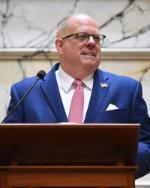 Funding and support has been provided by the State of Maryland with the support of Governor Larry Hogan.
Funding and support has been provided by the State of Maryland with the support of Governor Larry Hogan.
“It is through the efforts of fierce advocates that rare diseases like TSC are getting the attention needed to find cures,” said Governor Larry Hogan. “We were proud to work across the aisle to include $500,000 for this center in our most recent budget, and the state will continue to strongly support this partnership. Now, families who are coping with this disease will have access to the best doctors and international experts, and Maryland will be recognized as a premier center for adult care and research in TSC.”
About the University of Maryland School of Medicine
Now in its third century, the University of Maryland School of Medicine was chartered in 1807 as the first public medical school in the United States. It continues today as one of the fastest growing, top-tier biomedical research enterprises in the world -- with 43 academic departments, centers, institutes, and programs; and a faculty of more than 3,000 physicians, scientists, and allied health professionals, including members of the National Academy of Medicine and the National Academy of Sciences, and a distinguished recipient of the Albert E. Lasker Award in Medical Research. With an operating budget of more than $1 billion, the School of Medicine works closely in partnership with the University of Maryland Medical Center and Medical System to provide research-intensive, academic and clinically based care for more than 1.2 million patients each year. The School has over 2,500 students, residents, and fellows, and more than $540 million in extramural funding, with most of its academic departments highly ranked among all medical schools in the nation in research funding. As one of the seven professional schools that make up the University of Maryland, Baltimore campus, the School of Medicine has a total workforce of nearly 7,000 individuals. The combined School and Medical System (“University of Maryland Medicine”) has an annual budget of nearly $6 billion and an economic impact more than $15 billion on the state and local community. The School of Medicine faculty, which ranks as the 8th highest among public medical schools in research productivity, is an innovator in translational medicine, with 600 active patents and 24 start-up companies. The School works locally, nationally, and globally, with research and treatment facilities in 36 countries around the world. Visit medschool.umaryland.edu
About the University of Maryland Medical Center
The University of Maryland Medical Center (UMMC) is comprised of two hospitals in Baltimore: an 841-bed teaching hospital Downtown – the flagship institution of the 14-hospital University of Maryland Medical System (UMMS) – and a 177-bed teaching hospital, UMMC Midtown Campus. UMMC is a national and regional referral center for trauma, cancer care, neuroservices, cardiac care, diabetes and endocrinology, women’s and children’s health. All physicians on staff at the Downtown flagship hospital are faculty physicians of the University of Maryland School of Medicine. At UMMC Midtown Campus, faculty physicians work alongside community physicians to provide patients with the highest quality care. UMMC Midtown Campus was founded in 1881 and is located one mile away from the Downtown Campus. For more information, visit umm.edu.
About the TS Alliance
The Tuberous Sclerosis Alliance is the only U.Ss-based nonprofit dedicated to finding a cure for tuberous sclerosis complex while improving the lives of those effected. Founded in 1974, it works to improve quality of life for individuals and families affected by TSC by stimulating and sponsoring research; creating programs, support services and resource information; and developing and implementing public and professional programs designed to heighten awareness of the disease. For more information, visit www.tsalliance.org
Contact
Department of Anesthesiology
(410) 328-6120 (phone)
(410) 328-5531 (fax)
swalsh@som.umaryland.edu
Joanne Morrison
Director of Marketing and Public Relations
Center for Vaccine Development and Global Health
University of Maryland School of Medicine
jmorrison@som.umaryland.edu
Office: (410) 706-2884
Mobile: (202) 841-3369
Related stories

Monday, October 18, 2021
University of Maryland School of Medicine Neurology Chair Peter B. Crino, MD, PhD, Receives Prestigious Neuroscience Award
University of Maryland School of Medicine (UMSOM) Dean E. Albert Reece, MD, PhD, MBA announced today that Peter B. Crino, MD, PhD, Professor and Chair of UMSOM’s Department of Neurology, has received the Javits Neuroscience Investigator Award (R37), which provides $2.7 million in total funding.
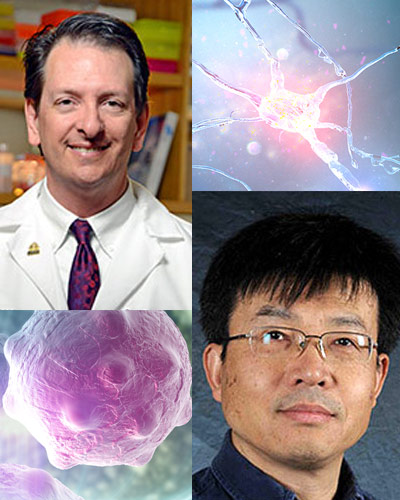
Monday, November 16, 2020
University of Maryland School of Medicine Establishes Two New Endowed Professorships Through Private Gifts and Matching State Funds
– University of Maryland School of Medicine (UMSOM) Dean E. Albert Reece, MD, PhD, MBA, announced today that the school has been awarded $1.5 million in matching funds from the Maryland E-Nnovation Initiative Fund (MEIF), administered by the Maryland Department of Commerce. The funds, when combined with private philanthropy, has allowed the creation of two new endowed professorships – one in the Department of Neurology and one in at the Institute of Human Virology (IHV). As part of its goal to attract and retain top faculty and foster the development of new technologies and therapies, the School of Medicine had requested that the funds be used to establish these two new endowed professorships.
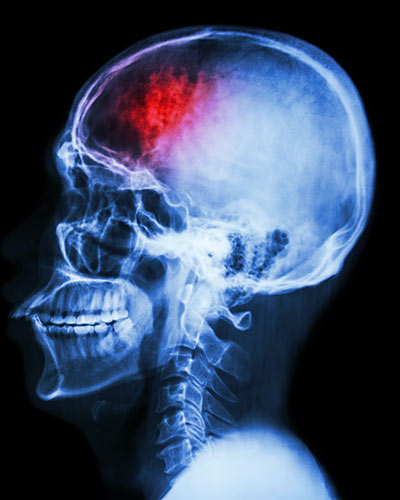
Tuesday, March 27, 2018
Large International Study Provides New Insight into the Genetic Causes of Stroke
An international research group, including scientists at the University of Maryland School of Medicine, studying 520,000 people from around the world has identified 22 new genetic risk factors for stroke, tripling the number of gene regions known to affect stroke risk. The results show that stroke shares genetic influences with other vascular conditions, especially blood pressure, but also coronary artery disease and others. These results provide new clues on stroke mechanisms and could help scientists identify drug targets for treatment.
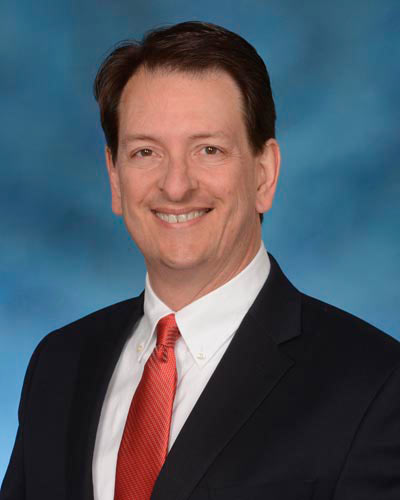
Monday, March 21, 2016
Leading Neuroscientist Dr. Peter B. Crino Appointed Chair of UM SOM Department of Neurology
University of Maryland School of Medicine (UM SOM) Dean E. Albert Reece, MD, PhD, MBA, announced today that Peter B. Crino, MD, PhD, professor and vice chair for research at Temple University School of Medicine’s Shriners Hospital Pediatric Research Center, and an internationally-recognized physician-scientist in developmental brain disorders, has been appointed Chairman of the UM SOM Department of Neurology. Dr. Crino succeeds Interim Chair Barney J. Stern, MD, Professor of Neurology, who had replaced William Weiner, MD, when he passed away in 2012. Dr. Stern will continue as Vice Chair and Professor of the Department of Neurology.
